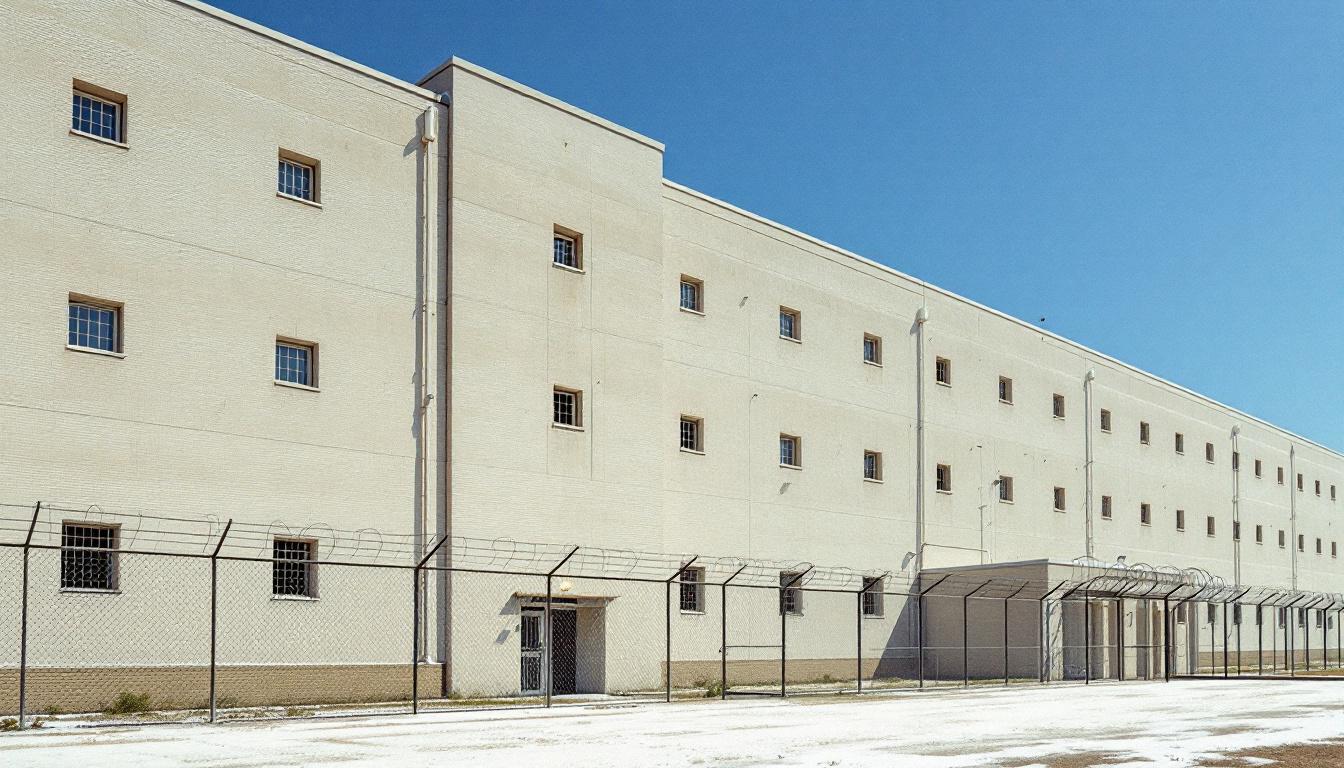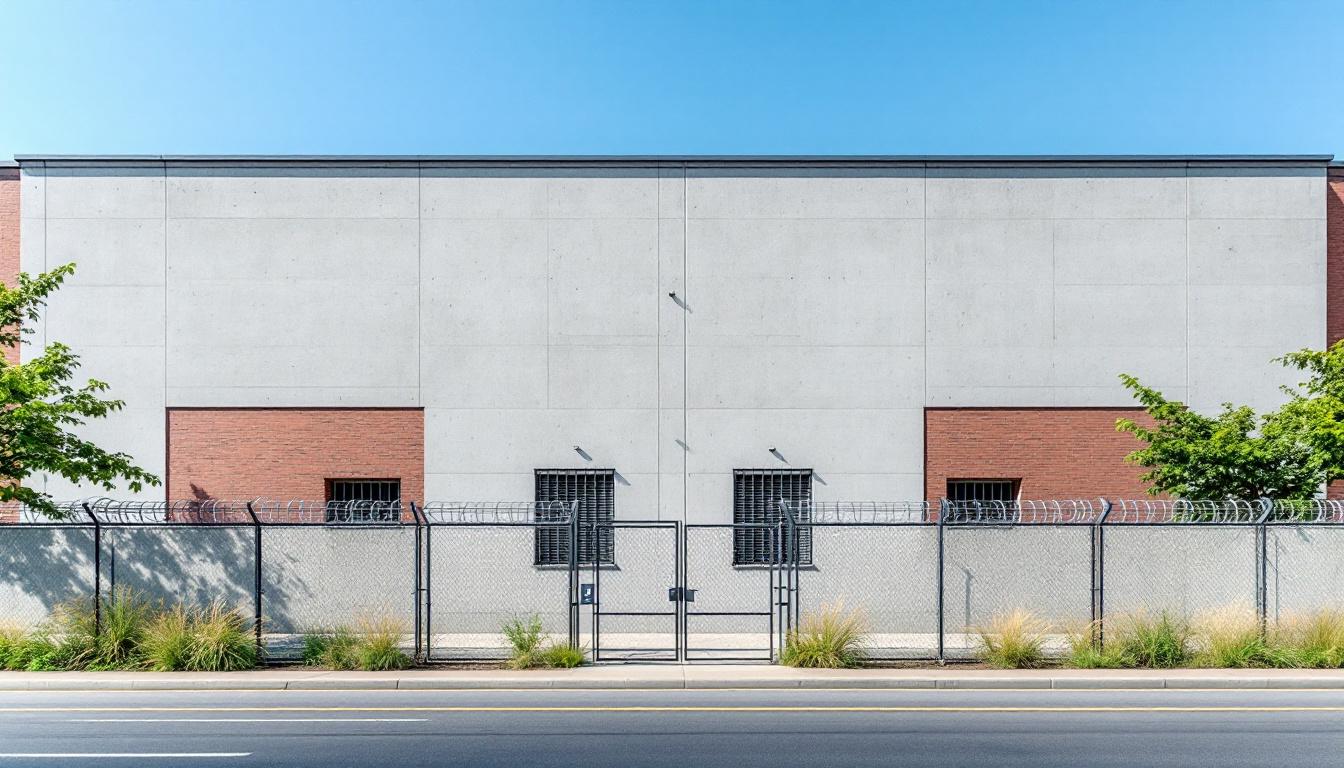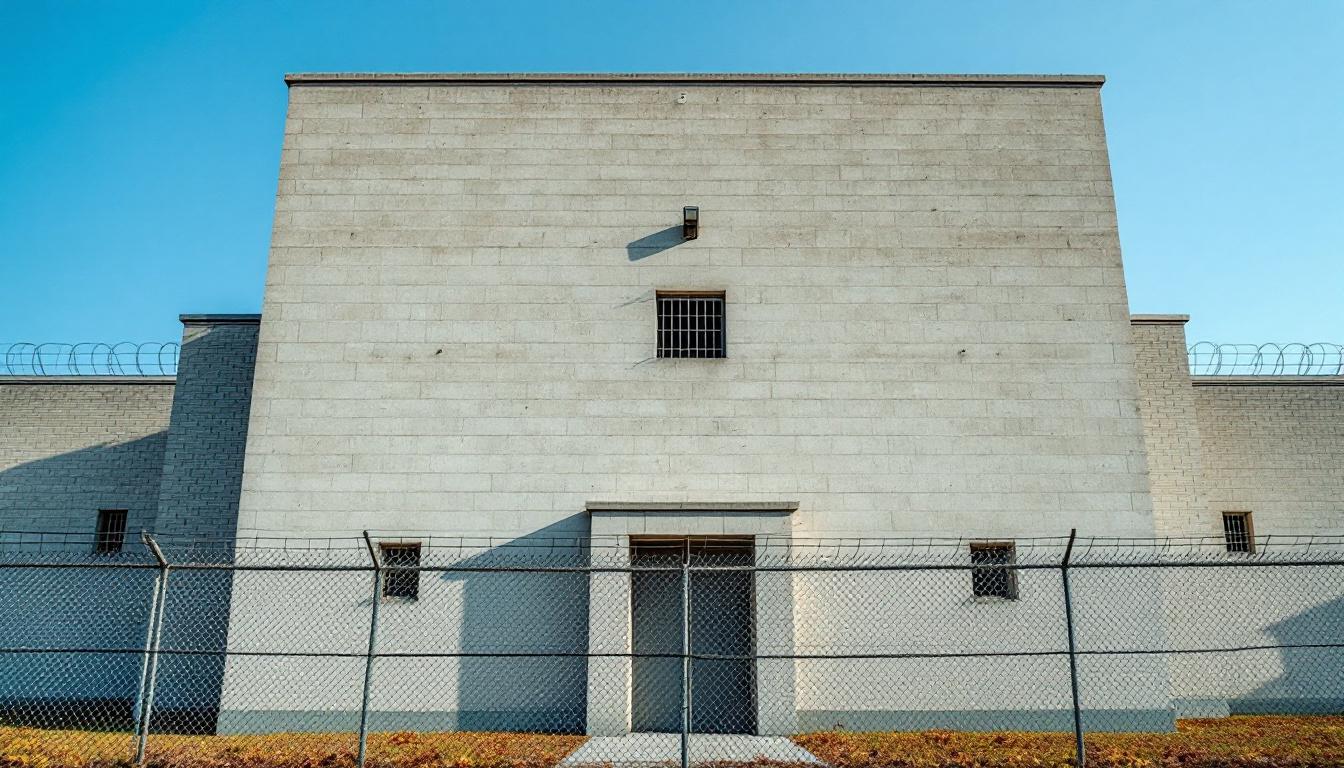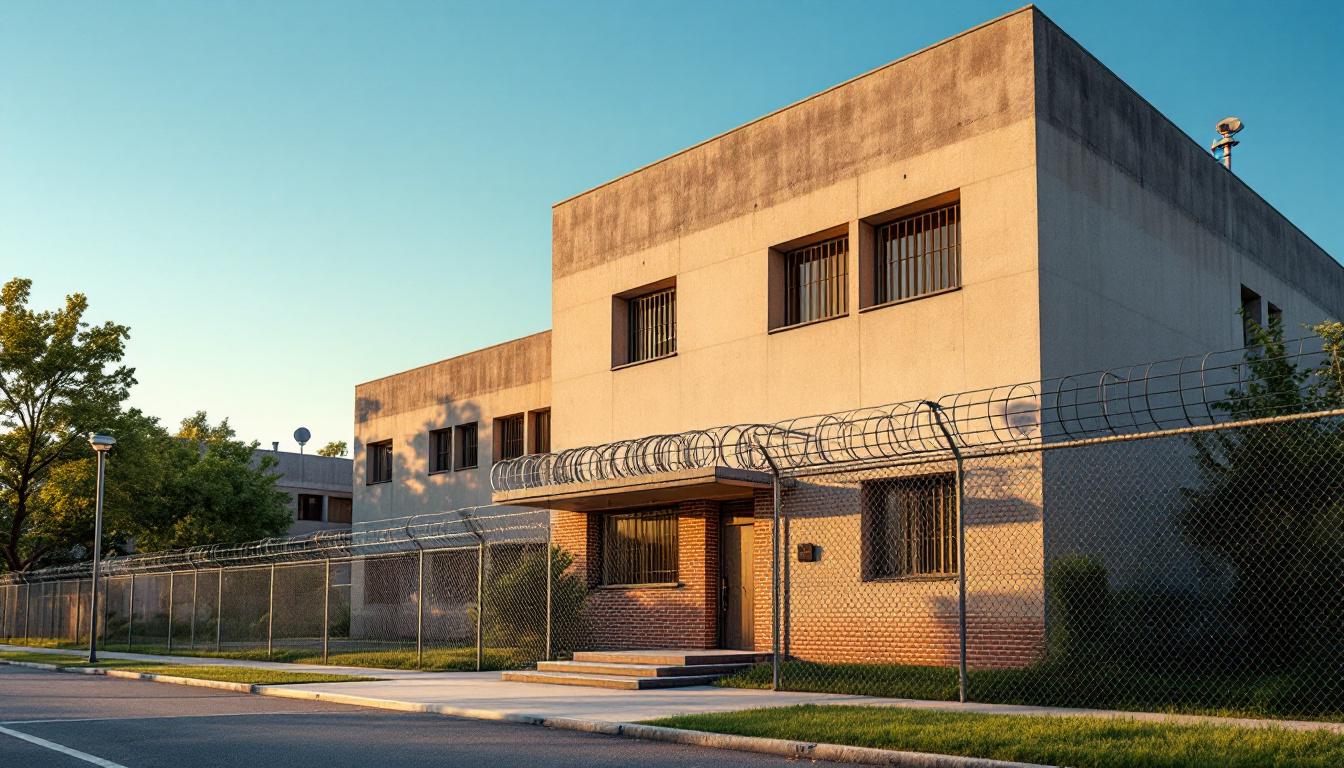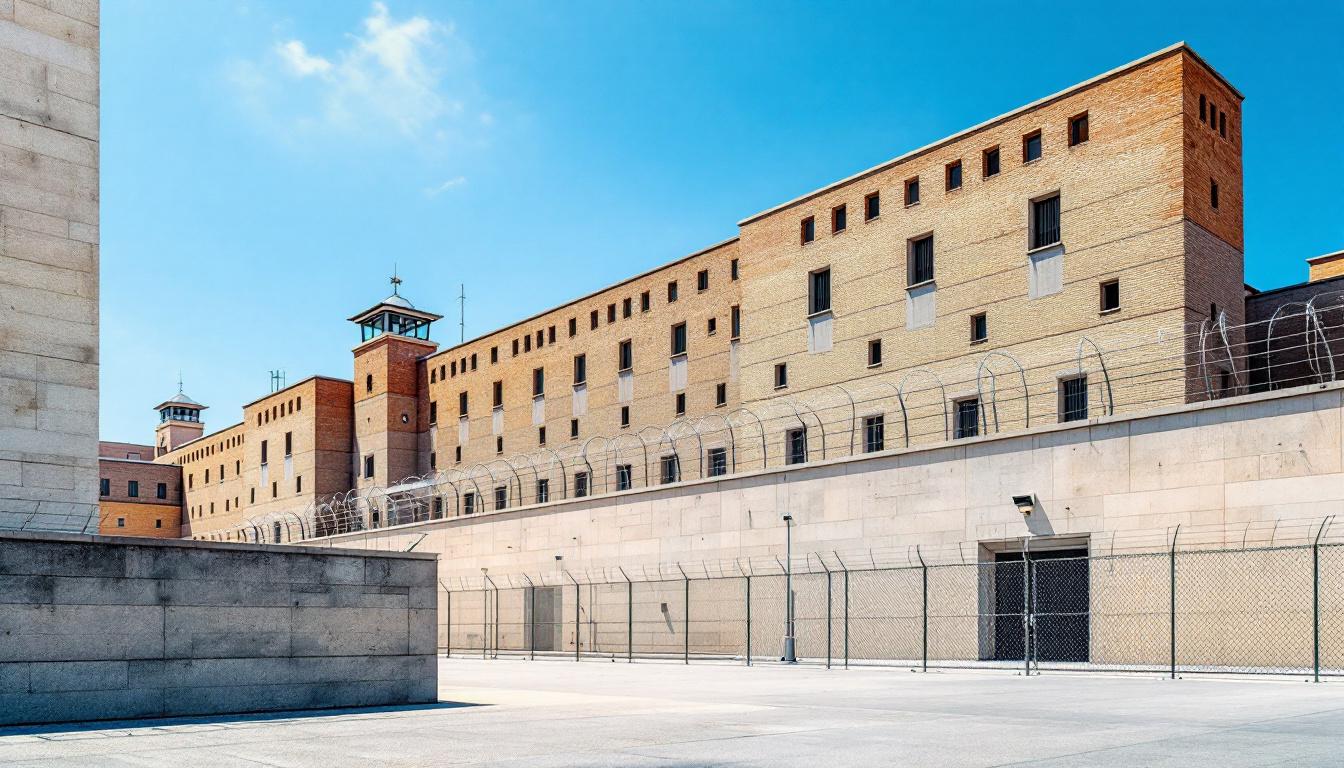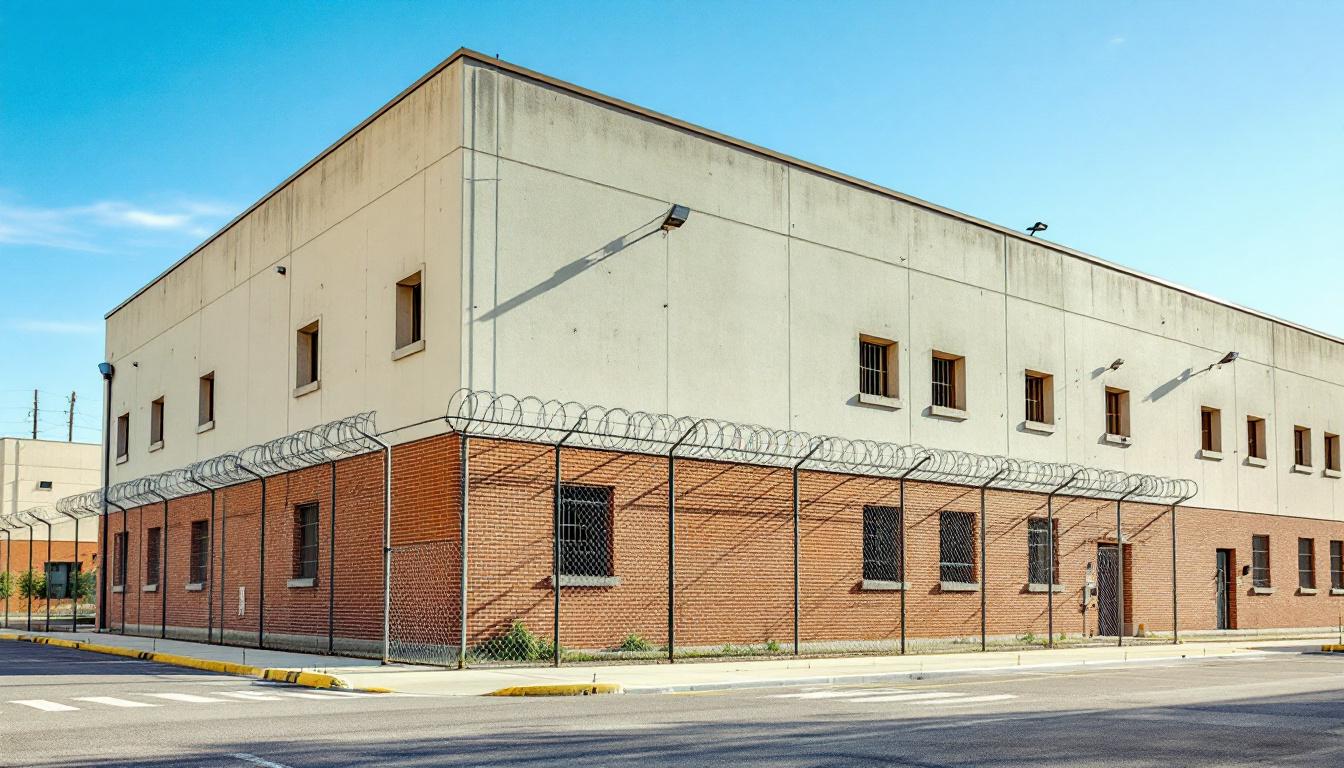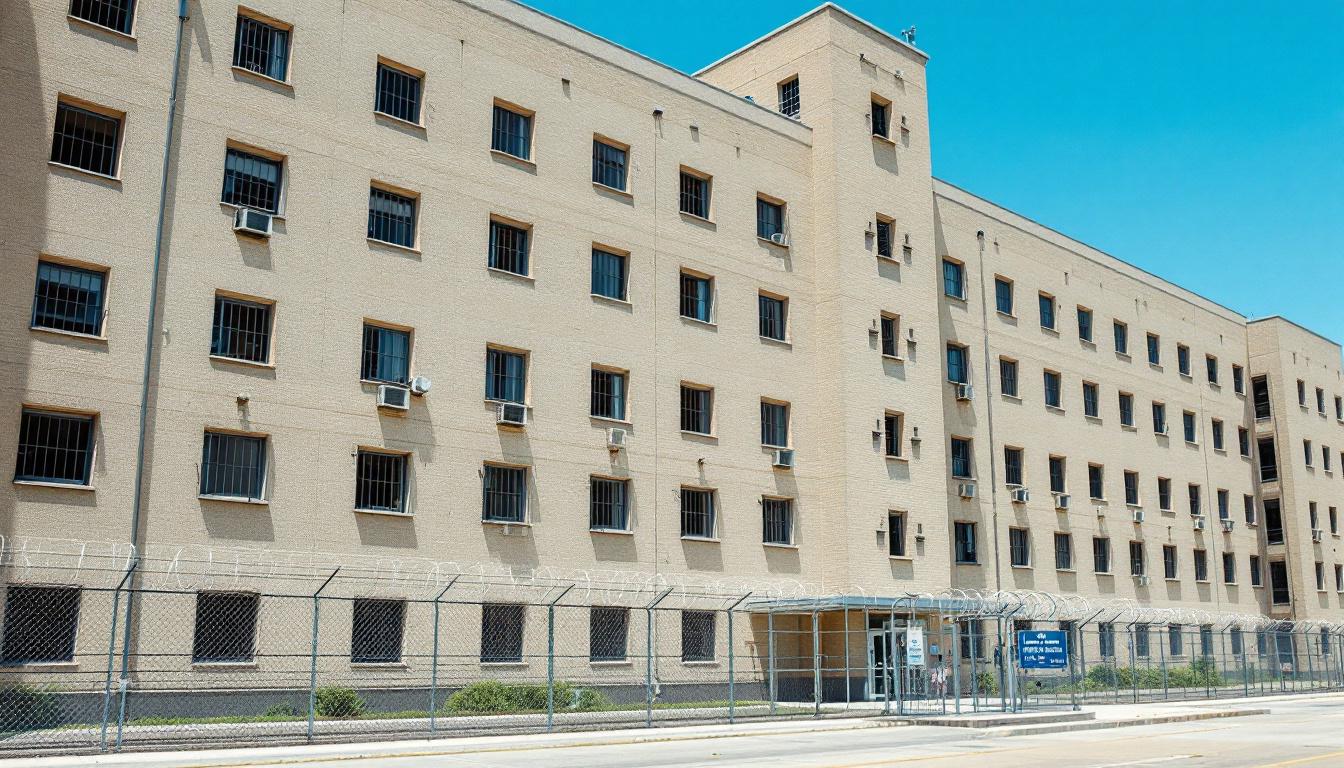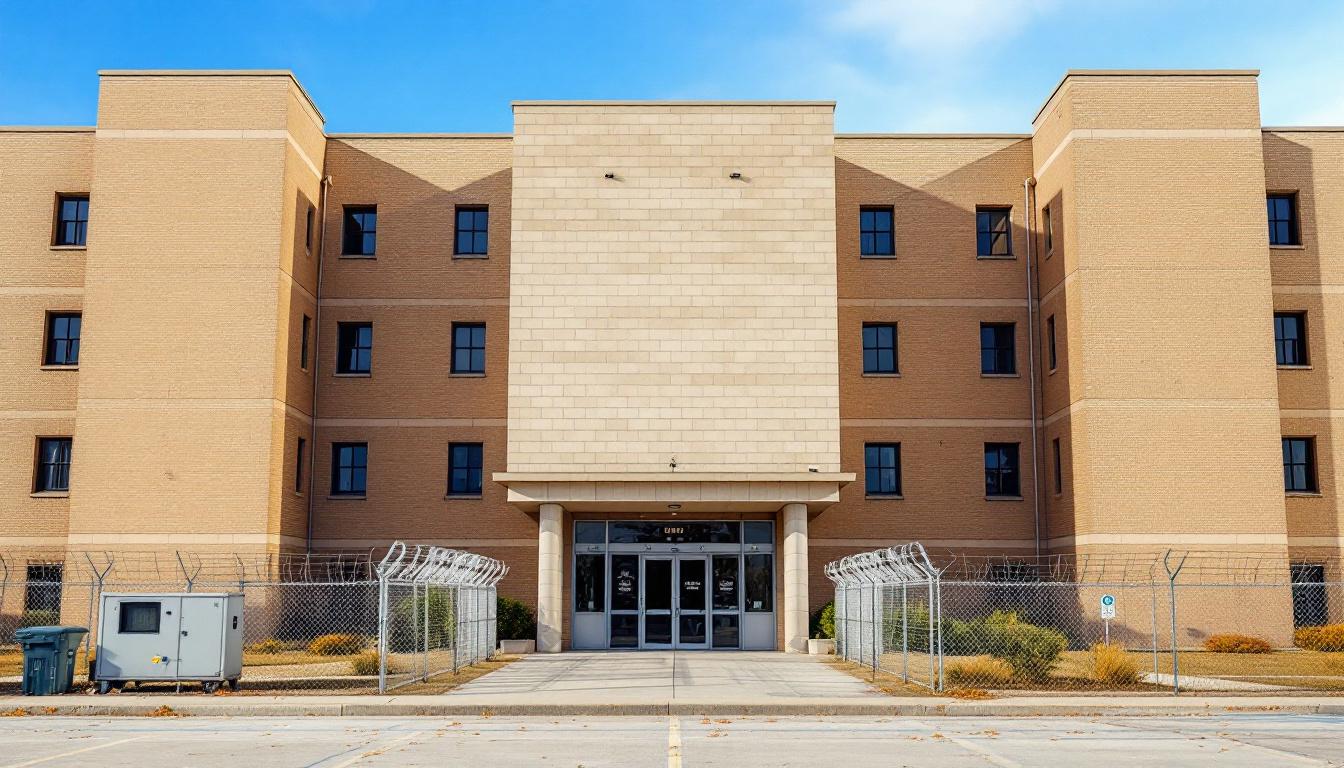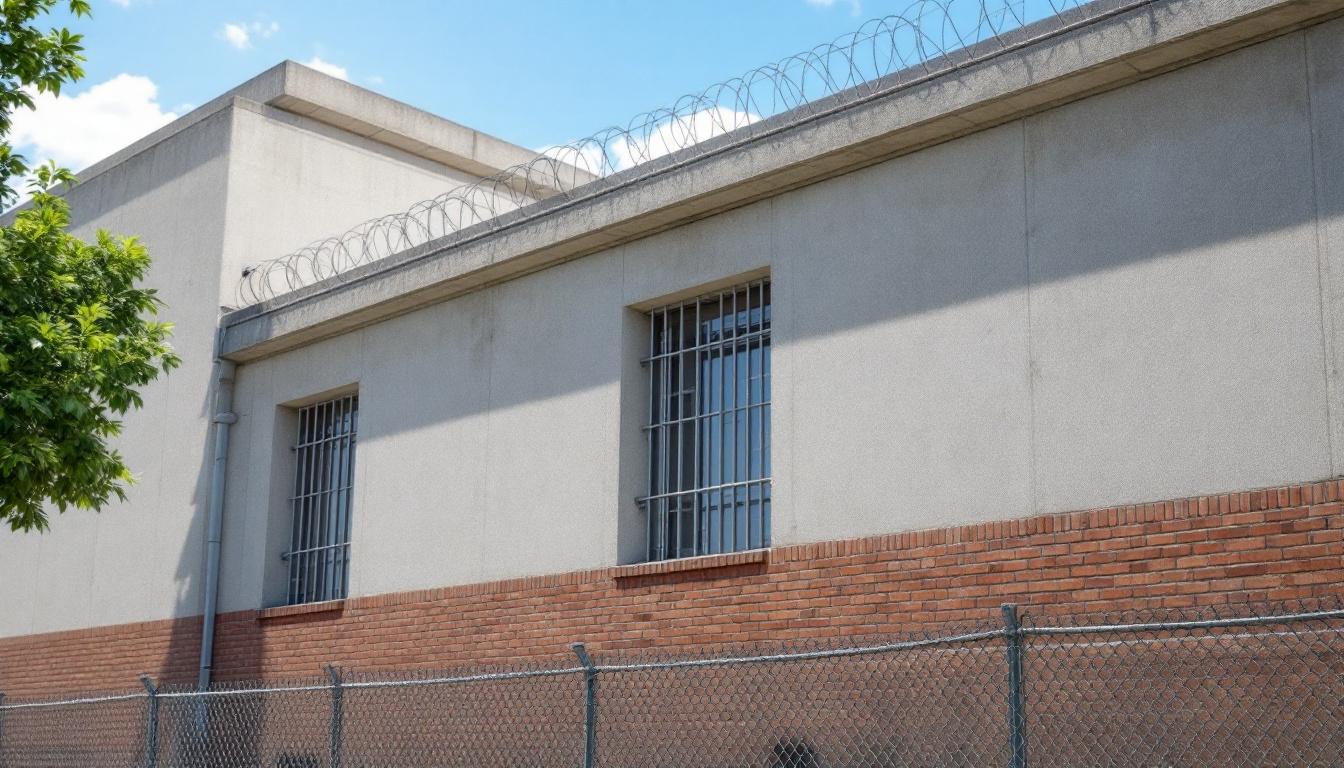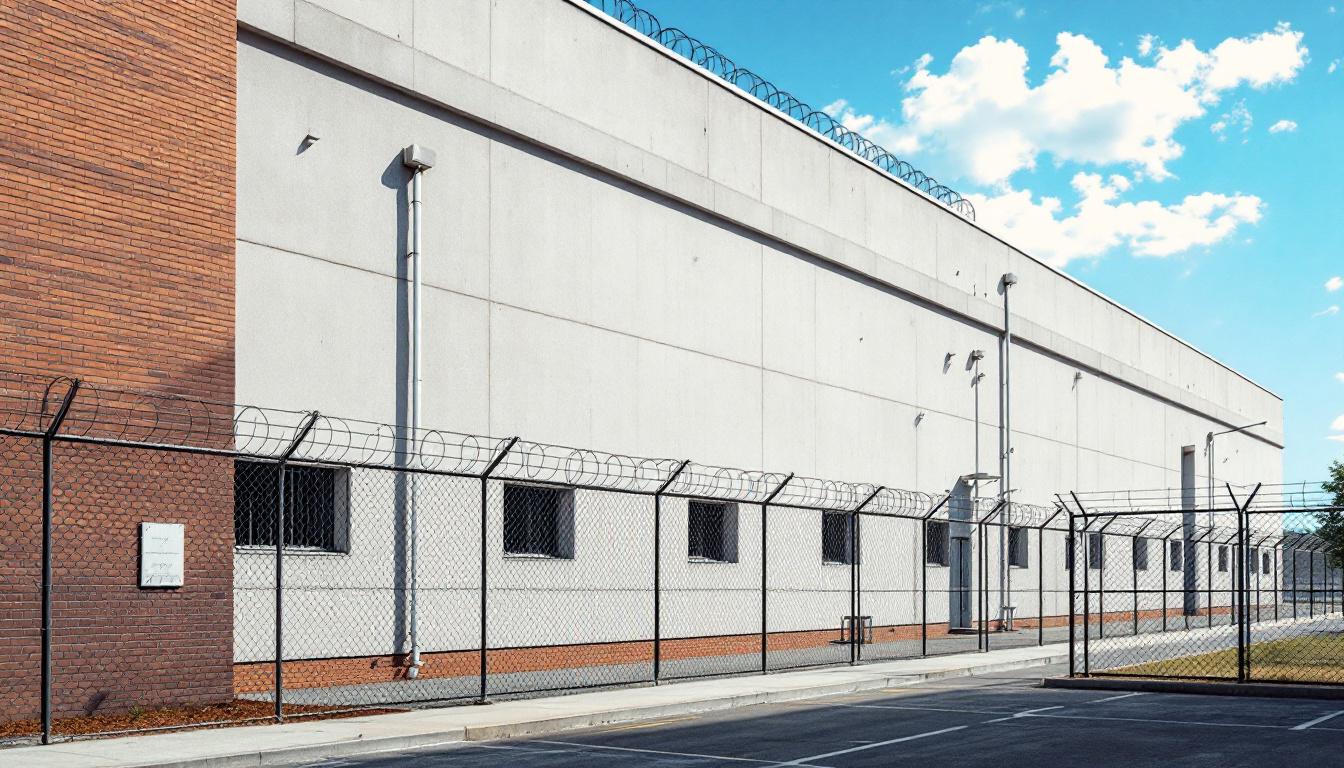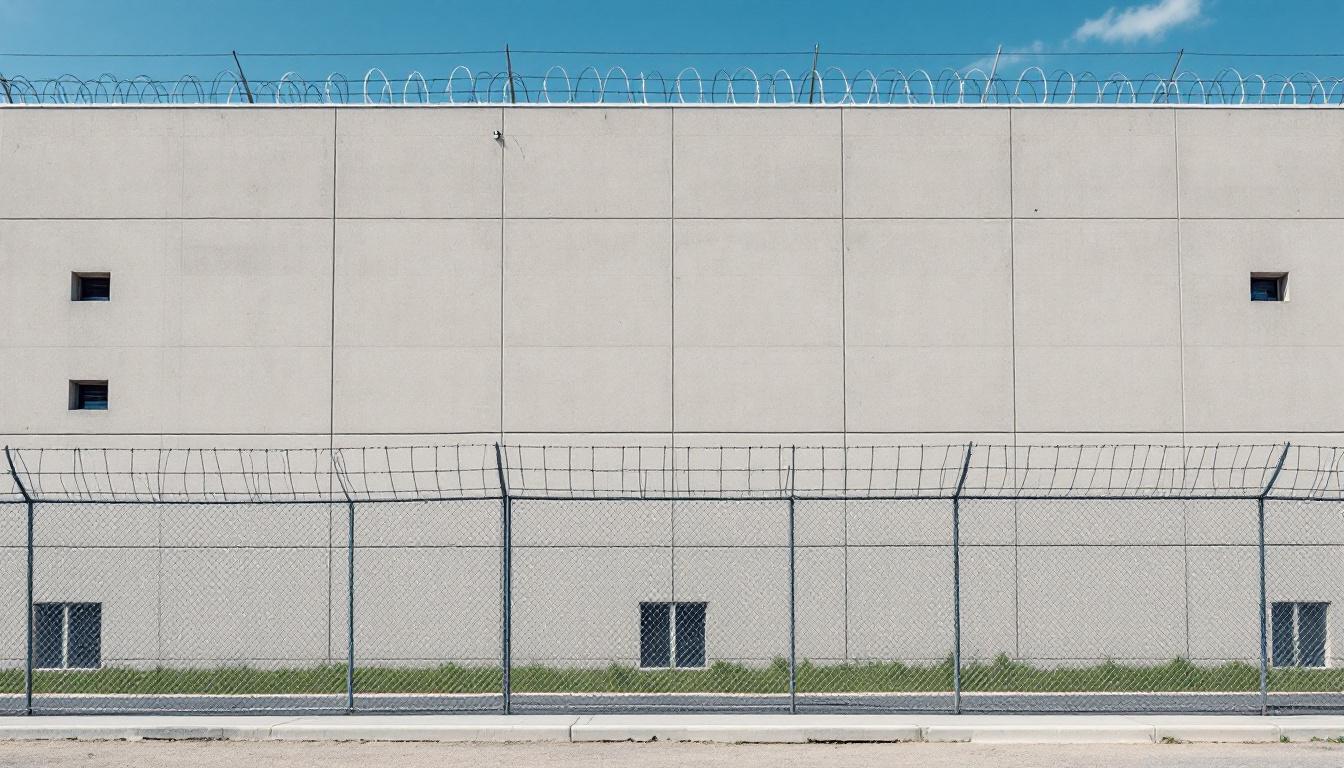
Quick Navigation
How to contact an inmate at Delta Conservation Camp #8
This comprehensive guide will walk you through how to connect with an inmate at Delta Conservation Camp #8. Follow the steps below to find an inmate and send letters and photos:
- Search for the inmate using our search tool below
- Create your account or log in to Penmate
- Write your message (up to 6,000 characters)
- Send instantly - inmates receive printed copies daily
Find an Inmate
Search for an inmate to start communicating today
Tip: You can search by first name, last name, or inmate ID number
To contact a person at Delta Conservation Camp #8 start by searching for the person on the official facility website. Perform a search by following these steps:
- Step 1: Enter their first name and last name into the search form and click "Search"
- Step 2: Locate their inmate record
- Step 3: Write down their Inmate ID and any housing information provided
Important! Be sure to enter the person's full name. Nicknames should not be used.
How to Send Messages to Inmates

You can use your phone or computer to send emails, letters, and photos to an inmate. Messages are sent electronically to inmate tablets or kiosks at the facility. If you would like to send a message, start by searching for an inmate at Delta Conservation Camp #8.
Sending Photos and Postcards

A great way to send love and support to a loved one at Delta Conservation Camp #8 is to send photos and postcards. It only takes a few minutes to send photos from your phone and it makes a huge difference. You can also mail postcards with words of support and inspiration, or design your own postcard for special moments like birthdays and holidays.
Important! Be sure not to send any explicit photos or they may not be approved by the facility. You can also use a photo printing app like Penmate to make sure your photos are printed at the correct size (4x6 or 3x5) and are mailed according to the rules and regulations of Delta Conservation Camp #8.
Frequently asked questions about Delta Conservation Camp #8
-
How long does it take to deliver a message?
If you're sending an email message your letter is usually delivered within 24-48 hours. For messages sent via mail you should expect delivery within 3-7 days. All messages will need be approved by Delta Conservation Camp #8.
-
How much does it cost to send a message to Delta Conservation Camp #8?
You can send a message free using your phone or mail a message via USPS for the price of a $0.60 stamp and envelope. You can also purchase credits or e-stamps from services starting at $1.99.
-
What services can I use to contact an inmate at Delta Conservation Camp #8?
Penmate
You can use Penmate to send letters and photos to an inmate from your phone. It's an easy way to stay in touch during your loved one's incarceration. Use the inmate locator to find an inmate's location and contact information, then you can send messages within a few minutes.
Securus messaging
Securus may be another option for communicating with an inmate at Delta Conservation Camp #8. You can create a friends and family account and purchase credits to send messages. All messages will be reviewed and must be approved by the facility.
JPay
Some county jails and state prisons may support sending messages with JPay. You must register an account with the system, find your loved one, and purchase stamps to send messages. For some locations you can also attach photos.
Smart Jail Mail
You may also check if Smart Jail Mail is available at Delta Conservation Camp #8. Smart Jail Mail is operated by Smart Communications and has contracted with some state and county jails. After purchasing credits, your messages and photos are sent to the facility, printed out, and then handed out to your loved one.
-
What is the mailing address of Delta Conservation Camp #8?
Mailing address:
Delta Conservation Camp #8
6246 Lambie Rd
Suisun City, CA 94585
-
What are the visiting hours at Delta Conservation Camp #8?
Visiting hours at Delta Conservation Camp #8 vary by housing unit and security level. Generally, visits are scheduled on weekends and holidays, with some facilities offering weekday visits. Contact the facility directly for the current visiting schedule. Visits typically last 30-60 minutes and must be scheduled in advance.
-
What items are prohibited when sending mail to Delta Conservation Camp #8?
Prohibited items typically include: cash, personal checks, stamps, stickers, glitter, glue, tape, staples, paperclips, polaroid photos, musical or blank greeting cards, hardcover books, magazines with staples, and any items containing metal or electronics. Only send letters on plain white paper with blue or black ink. Photos must be printed on regular photo paper (no Polaroids). Always check with Delta Conservation Camp #8 for their specific mail policies.
-
How do I send money to an inmate at Delta Conservation Camp #8?
You can send money to an inmate at Delta Conservation Camp #8 through several methods: 1) Online using JPay, Access Corrections, or the facility's approved vendor, 2) Money orders mailed directly to the facility with the inmate's name and ID number, 3) Kiosks located in the facility lobby, or 4) Over the phone using a credit or debit card. Fees vary by method, typically ranging from $2.95 to $11.95 per transaction.
-
Can I schedule a video visit with an inmate at Delta Conservation Camp #8?
Many facilities now offer video visitation as an alternative to in-person visits. At Delta Conservation Camp #8, video visits may be available through services like Penmate, Securus Video Connect, GTL, or ICSolutions. Video visits typically cost $10-20 for 20-30 minutes and must be scheduled in advance. You'll need a computer or smartphone with a camera and reliable internet connection. Contact the facility for their specific video visitation policies and approved vendors.
-
What identification do I need to visit an inmate at Delta Conservation Camp #8?
All visitors must present valid government-issued photo identification such as a driver's license, state ID, passport, or military ID. Minors must be accompanied by a parent or legal guardian who can provide the minor's birth certificate. Some facilities require visitors to be on the inmate's approved visitation list, which may require a background check. Contact Delta Conservation Camp #8 for specific ID requirements and visitor approval procedures.
-
How can I find out an inmate's release date?
To find an inmate's release date at Delta Conservation Camp #8, you can: 1) Use the online inmate search tool if available, 2) Call the facility's records department, 3) Contact the inmate's case manager or counselor, or 4) Have the inmate provide this information during a call or visit. For privacy reasons, some facilities only release this information to immediate family members.
Facility Overview
Contact Information
Delta Conservation Camp #86246 Lambie Rd
Suisun City, CA 94585
Official Website

About Delta Conservation Camp #8
Through its comprehensive rehabilitative programs and comprehensive conservation mission, Antelope Conservation Camp #25 serves incarcerated individuals with educational services, substance abuse programs including Alcoholics/Narcotics Anonymous (AA/NA), and religious programs. The facility operates a specialized CAL FIRE Canvas Shop that produces essential web gear for firefighters throughout California, providing valuable vocational training opportunities. When not engaged in firefighting activities, residents participate in meaningful community service projects that benefit various agencies including Fish & Game Public Services, Bureau of Land Management fire defense improvements, local government recreation projects, and Cal Trans public service initiatives.
This conservation camp is situated in Susanville, California, and represents a joint operation between the California Department of Corrections and Rehabilitation (CDCR) and the California Department of Forestry and Fire Protection (CAL FIRE). The facility’s primary mission centers on providing trained incarcerated hand crews for firefighting operations in the Lassen Modoc Ranger Unit and Plumas County areas. CDCR maintains responsibility for supervision, care, and discipline of residents, while CAL FIRE oversees camp maintenance and supervises daily project activities.
Established in February 1963, the camp offers residents opportunities to develop valuable skills through hands-on conservation work and emergency response training. The collaborative structure allows participants to contribute meaningfully to public safety and environmental protection while engaging in programs designed to support successful reintegration. Located at P.O. Box 270160, Susanville, CA 96127, the facility typically houses individuals who have demonstrated commitment to rehabilitation and meet specific criteria for participation in conservation and firefighting activities.
Programs & Services
Rehabilitative and educational services form the cornerstone of programming at conservation camps, with substance abuse programs such as Alcoholics/Narcotics Anonymous (AA/NA) and religious programs providing crucial support for individuals working toward successful reintegration. These evidence-based interventions address underlying issues that may have contributed to criminal behavior while fostering personal accountability and spiritual growth. The comprehensive environment of fire camp allows participants to develop discipline and teamwork skills through their firefighting training and emergency response duties, creating a structured framework for personal transformation.
Beyond the specialized firefighting preparation, conservation camps typically offer educational opportunities that may include adult basic education, GED preparation, and vocational training programs designed to provide marketable skills upon release. Counseling services often encompass individual and group therapy sessions, anger management courses, and life skills development workshops that help individuals build healthy coping mechanisms and interpersonal relationships. Mental health support services are generally available to address trauma, depression, and other psychological challenges that participants may face during their incarceration.
The combination of meaningful work through firefighting and community service projects, coupled with comprehensive rehabilitative programming, creates an environment where individuals can develop both practical skills and personal resilience. Career readiness programs may include job placement assistance, resume writing workshops, and interview preparation to help participants transition successfully back into their communities. These integrated services work together to address the complex needs of individuals while preparing them to become productive, law-abiding citizens upon their release.
Daily Life & Visitation
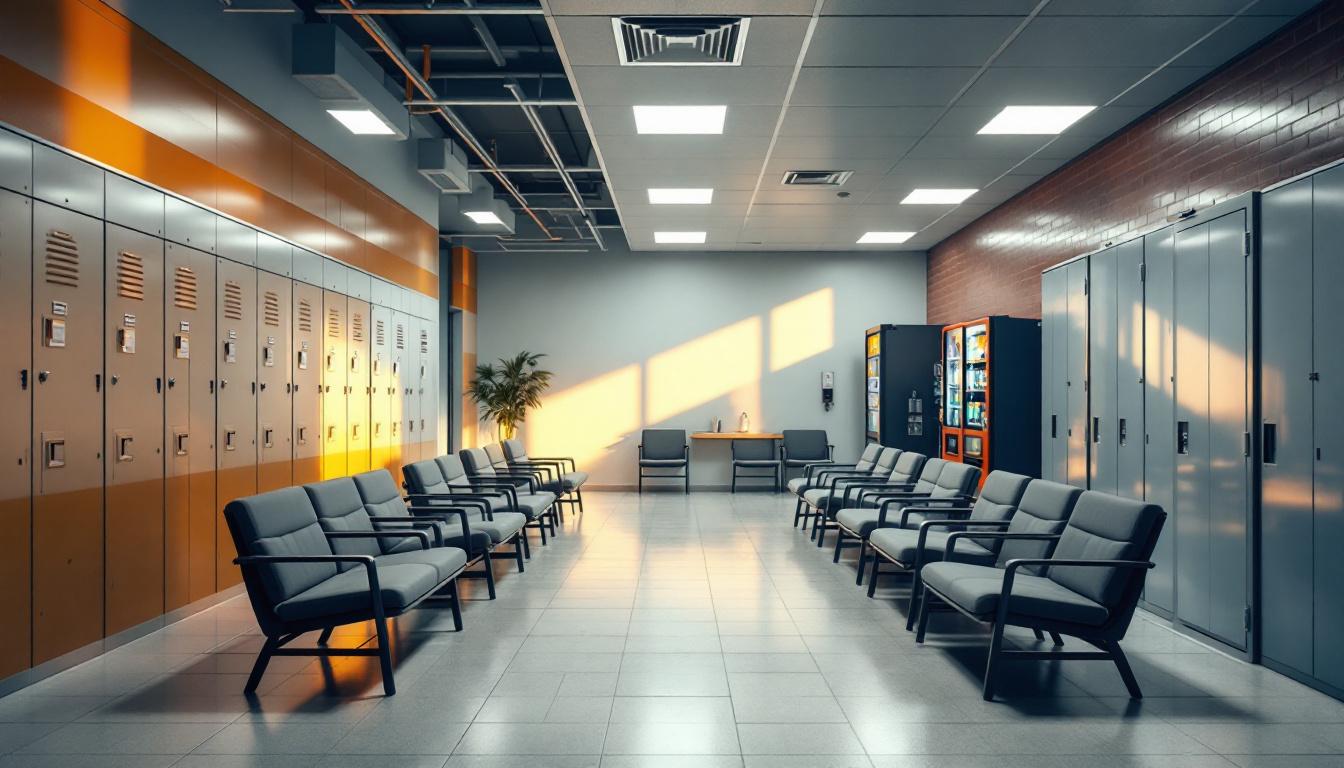
The sound of morning reveille echoes across Antelope Conservation Camp #25 at dawn, where incarcerated individuals prepare for another day that may bring anything from routine conservation work to emergency wildfire response. Located in Susanville, this jointly operated facility between CDCR and CAL FIRE maintains a comprehensive schedule that revolves around both the structured environment of corrections and the unpredictable demands of firefighting and forest management.
When not deployed to active fire scenes throughout the Lassen Modoc Ranger Unit and Plumas County areas, residents typically spend their days engaged in various conservation projects and community service work. The camp’s Canvas Shop operates as an ongoing project where individuals produce essential web gear for firefighters across California, providing valuable vocational training while contributing to statewide fire safety efforts. Work assignments may also include projects with Fish & Game Public Services, Bureau of Land Management fire defense improvements, local government recreation projects, and CalTrans public service initiatives, offering diverse skill-building opportunities.
Evenings often include participation in rehabilitative programs that mirror those available throughout the CDCR system, including substance abuse support through Alcoholics and Narcotics Anonymous meetings and religious services. The camp’s remote location and specialized mission create a distinct atmosphere where residents may experience both the satisfaction of meaningful conservation work and the readiness required for potential emergency deployment. Visitation and communication policies typically follow standard CDCR guidelines, though families should contact the facility directly at (530) 257-2181, ext. 4224 to confirm current procedures and scheduling, as the camp’s firefighting responsibilities may occasionally affect normal operations.
Ready to Connect?
Start communicating with your loved one today
Search for an Inmate
